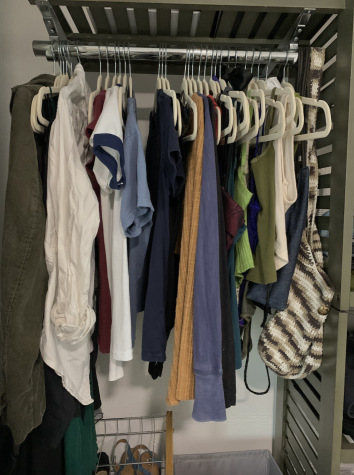American Diet Culture and Body Positivity Does More Harm than Good
It’s no secret that almost everyone wants their body to look a certain way and with the pressure on young women and men, this desire to have the perfect features can turn into an unhealthy habit. So how do we understand and approach this problem, there are many ways to help someone with a negative body and food mindset but the work starts within and forced recovery is never really successful. Body shaming can start in many ways, comments from others being a large factor, and diet culture in America sets people up for nothing but disappointment. We’ve seen it all as a society with teas, supplements, and magical machines that will give you abs overnight. The truth is these products are nothing more than useless gadgets that push already helpless consumers into a deeper hole of self-hatred furthering the profit they’ll make with their next debut of a quick weight loss money grab. Starting with how women are viewed in American diet culture, it’s obvious that the purpose of women not only in the media but in life as well is to be sought after. Women are thought of as something to chase then keep disregarding their feelings and thoughts, and most women do things to their appearance to please whoever may be chasing them, this could mean staying young-looking or having a thinner waistline. For men, there are just as many social body standards that push them to the same lengths as women. Just as soon as the general public decides what is socially acceptable it will be the next thing on the market. Diet culture doesn’t just have to mean starving and body concerns, it also has a lot to do with obesity and access.
A large concern of ours as a nation has always been the obesity percentage. Ranking number one in the world for things such as this is just making a commodity of our already laughable internal citizen support systems. I’ll play the devil’s advocate here and say that it’s not only the person who happens to be the one bearing the weight’s fault but also grocery stores, genetics, geography, and the media.
Starting with the two that partner up to cause the most detrimental effects are geography and grocery stores. An important part of all of this and the food being sold and heavily marketed here is almost always heavily processed, not to mention a lack of access to clean foods for people living in poverty. In poverty-ridden places hence the mention of geography within cities there are virtually no grocery stores or fresh produce markets like there are in middle and upper-class neighborhoods. The technical term is food desserts and they are about as American as guns.
Running off of ideas pushed only by Americans, the glamorization of obese people in the media. This is special because not only can entertainment networks get away with pushing many negative stereotypes of overweight people they also get to profit off the exploitation of morbidly obese people. Programs such as my 600-pound life shouldn’t be watched to entertain, situations such as that are extremely disheartening and food addictions are an actual problem due to the food being sold here. It’s just like filming someone with serious drug addiction and getting a kick out of it, we should stop providing viewership for such corrupt forms of tv shows and marketing it as comedy or drama.
This furthers the point that obesity is not a one-way street, it’s a million little things curated by companies trying to make a profit or save it by the excuse of not putting any chain stores on poorer sides of town due to the fear of stealing. Walmart, Publix, Target, Trader Joe’s, and Fresh Market can stand to lose a little so an entire community can gain a lot.
Dissecting diet culture is nearly impossible these days with how much goes on behind the scenes that we never even get to see. Planning, editing, and photoshopping are the basis of social media and this is very discouraging for young women. The more we try to make Instagram “casual” the more calculated posts become, culture like this is the only marketing diet supplements will ever need. As shown in a study from 2020 Americans spend an average of $2.1 billion per year on supplements. There are ways to stay away from negative mindsets approaching food, body imagery, and dieting however with the statistics just presented it is evident that the corruption of being perfect has already affected Americans enough to leave a spot in their budget for their next “flat tummy in 20 days” purchase. I’ve spoken a lot on how young women are held to certain standards societally, however, young men have a lot of pressure on their body images as well. On social media specifically, everyone is asked a lot and for men, it falls into one of two categories. The first is the “so skinny he looks sick” kind of body, this trend circulated on TikTok for a while where many women would say this is what they look for in men. I believe this did a lot more harm than anyone’s willing to admit because eating disorders, although mainly affecting women, can also hurt men just as much. The second is the “gym rat” culture which is heavily encouraged by other men and probably a more popular influence than the first. Here men encourage other men to measure food to the gram, replace meals with protein powder, and view it as an accomplishment to be in the gym majority of the day. All eating disorder behaviors, just completely normalized.
Shedding light on such a serious topic is not enough, education can only go far. However, it’s time we started viewing our bodies the way they were meant to be viewed and not continuously stigmatizing over or underweight people.












